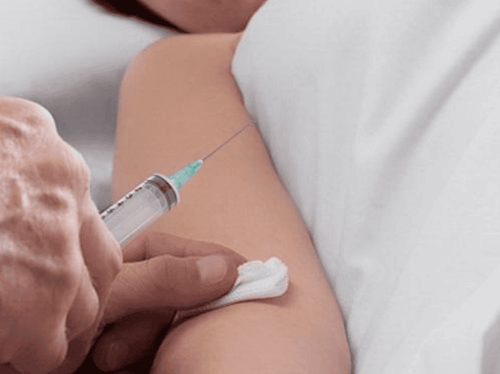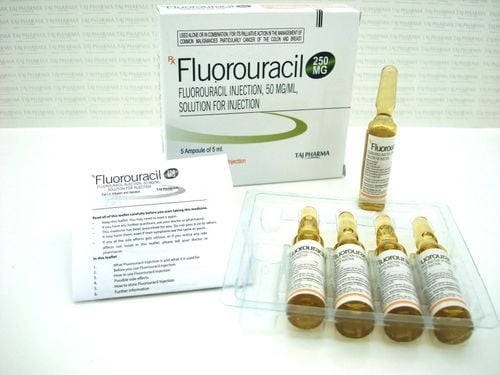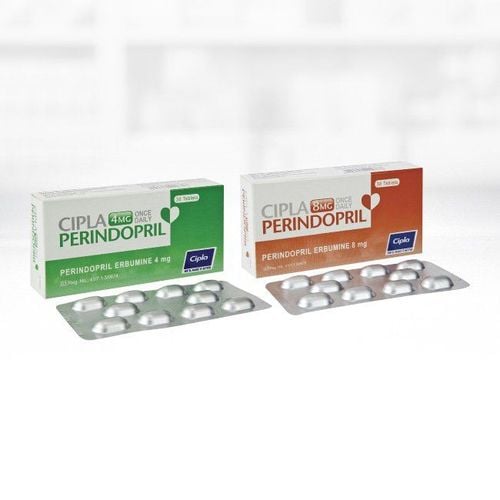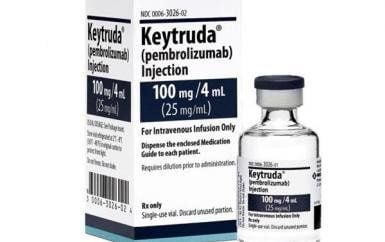This is an automatically translated article.
Ellence is commonly used to treat breast cancer. Ellence belongs to a class of drugs called anthracyclines and works by slowing or stopping the growth of cancer cells.
1. Indications and contraindications of Ellence
Ellence drug is indicated in the following cases:
Metastatic breast carcinoma Hodgkin lymphoma Diffuse large B-cell lymphoma Stomach cancer In situ advanced breast carcinoma Osteosarcoma Ellence is contraindicated in the following cases:
Severe infection Significant decrease in bone marrow activity Anemia Low platelet count in the blood Low level of neutrophils A heart attack Heart attack within the last 30 days Cardiomyopathy Abnormal heart rhythm Chronic heart failure Acute decompensated heart failure Abnormal ECG with QT changes at birth Stomatitis Severe liver disease Severe kidney failure High blood bilirubin Pregnancy Pregnancy
2. How to use Ellence
Ellence is to be administered by injection into a vein by a qualified healthcare professional, as directed by a physician. The dose of Ellence is based on your medical condition, body size, and response to treatment. If Ellence touches your skin, immediately rinse the area with water. You can also use soap and water or a mixture of baking soda (sodium bicarbonate) with plenty of water. If Ellence gets into eyes, open eyelids and rinse with water for 15 minutes, then seek medical attention immediately. Drink plenty of fluids while using Ellence unless otherwise directed by your doctor. Doing so helps reduce the risk of certain side effects of the medication such as increased uric acid. Tests such as a complete blood count, liver function tests, and certain heart function tests such as LVEF should be done before you start using Ellence and while you are using it.

Thuốc Ellence được sử dụng bằng đường tiêm vào tĩnh mạch
3. Ellence . side effects
While using Ellence, you may experience nausea, vomiting, diarrhea, abdominal pain, flushing, or change in color of your skin or nails. Nausea and vomiting can be serious. In some cases, your doctor may prescribe medication to prevent or reduce nausea and vomiting caused by Ellence. Breaking food into small meals throughout the day, not eating before treatment, or limiting activity may help alleviate some of these side effects. If these effects persist or get worse, tell your doctor right away.
Ellence may cause your urine to turn red. This is a normal, harmless effect of the drug, and it usually goes away within 2 days of each dose and should not be confused with blood in your urine.
Temporary hair loss is a common side effect of Ellence. Your hair will grow back normally once the treatment is over.
Remember that your doctor has prescribed Ellence because they have judged that the benefits to you outweigh the risk of side effects. Many people use Ellence without any serious side effects.
Tell your doctor right away if you have any serious side effects of Ellence, including: Menstrual changes (e.g. Stopping periods), bleeding, unusual bruising (e.g., irregular bleeding). Examples: Small red spots on the skin, black or bloody stools, bloody urine, vomit that looks like coffee grounds).
There may be pain or sores in the mouth and throat when using Ellence. Brush your teeth gently, carefully, avoid using mouthwash containing alcohol, and rinse your mouth regularly with cool water mixed with baking soda or salt. It is best to eat soft, moist foods.
Severe nausea, vomiting and diarrhea can rarely cause the body to lose too much water. Contact your doctor immediately if you notice any symptoms of dehydration such as less frequent urination, often dry mouth, increased thirst, decreased tear production, dizziness, loss of consciousness, wrinkling of the skin.
Ellence medicine sometimes causes side effects due to the rapid destruction of cancer cells (tumor lysis syndrome). To reduce your risk of experiencing this side effect, your doctor may add a medication and ask you to drink plenty of fluids. Tell your doctor right away if you have symptoms such as: Low back or side pain (lower back pain), signs of kidney problems (such as painful urination, pink or cloudy urine). blood, changes in the amount of urine), muscle spasms, weakness.
Get medical help right away if you have any very serious side effects of Ellence, including: Chest pain, coughing up blood, sudden pain, unusual swelling, redness in your legs.
Very serious allergic reactions to Ellence are very rare. However, if you notice any of the following symptoms of a serious allergic reaction to Ellence, get medical help right away. Symptoms of a serious allergic reaction include: Rash, itching/swelling (especially of the face/tongue/throat), difficulty breathing, severe dizziness.
Below are Ellence side effects by likelihood.
Common side effects of Ellence include:
Infection Decreased bone marrow function Anemia Low white blood cell count Low neutrophil count Esophagitis Red eyes No menstruation Hair loss Nausea Vomiting Digestive Unusual urine color Uncommon side effects of Ellence include:
Increased uric acid in the body which can lead to kidney disease Thrombocytopenia Thrombophlebitis due to blood clot Stomach or intestinal ulcers Redness of the skin posteriorly Radiation therapy Injection site reactions Dead tissue Tumor lysis syndrome Increased skin sensitivity to sunlight Nail discoloration Darkening of the skin Temporary redness of the face and neck Decreased appetite Phlebitis Rare side effect of Ellence include:
Blood clots in lungs Atrioventricular block Ventricular tachycardia Bradycardia Sinus tachycardia Chronic heart failure Left heart failure Cardiac toxicity Blood clots blockage Presence of blood clots in arteries Vascular Bleeding Pneumonia Stomach or intestinal bleeding Fever Chills Shock Anaphylactic shock Skin and tissue damage around wound injection Cellulitis Acute myeloid leukemia Radiation recall syndrome Dehydration Gastritis Leech's nest Hyperpigmentation inside the mouth This is not a complete list of Ellence's possible side effects. . If you notice other effects of Ellence medicine not listed above, contact your doctor right away for timely treatment.
4. Measures to prevent side effects of Ellence
Before using Ellence, tell your doctor if you are allergic to this medicine; or with other anthracyclines (eg, Doxorubicin); or anthracenedione (eg, Mitoxantrone) and any other allergies if present. Ellence may contain inactive ingredients that may cause allergic reactions or other problems.
Before using Ellence, tell your doctor your medical history, especially of: Blood problems, bleeding disorders (such as anemia, low blood cells), gout, heart disease (such as anemia, low blood cells). such as congestive heart failure, recent myocardial infarction, irregular, fast, slow heartbeat), kidney disease, liver disease, radiation treatment (especially chest area).
Do not get vaccinated or immunized while you are taking Ellence, without your doctor's consent, and avoid contact with people who have recently received oral polio vaccine or inhaled influenza vaccine. Wash your hands well to prevent the spread of infections.
To reduce the risk of bruising or injury, use caution with sharp objects such as razors and nail clippers, and avoid activities such as contact sports.
Ellence may make you more sensitive to the sun. Limit the time you spend in the sun, use sunscreen, and wear protective clothing when outdoors while being treated with Ellence.
Before surgery, tell your doctor or dentist that you are taking Ellence.
Use caution when using Ellence in the elderly because they may be more sensitive to the effects of the drug.
Care should be taken when giving Ellence to children because they may be more sensitive to the effects of the drug, especially the effect on the heart.
Ellence may affect sperm production in men, increasing the risk of having a baby with a birth defect. Therefore, men treated with Ellence should use reliable forms of birth control (such as condoms).
Ellence may affect menstruation in women and cause early menopause. Ellence is not recommended for use during pregnancy. It can harm an unborn baby.
Women of childbearing age should use reliable forms of birth control (eg, oral contraceptives, condoms) to prevent pregnancy during treatment and for 6 months after the last dose of epirubicin. Male patients with female partners should use reliable forms of contraception during treatment and for 3 months after the last dose. Male patients with a pregnant partner should use condoms during treatment and for at least 7 days after the last dose of Ellence. If you or your partner becomes pregnant or think you might be pregnant, tell your doctor right away.
That is, we do not know whether Ellence passes into breast milk or not. Due to the possible risk to the infant, breast-feeding while using Ellence and for at least 7 days after the last dose is not recommended.
5. Ellence drug interactions
Drug interactions can change the way Ellence works or increase the risk of serious side effects. Make a list of all the medications you take (including prescription, over-the-counter, and herbal products) and share it with your doctor. Do not start, stop, or change the dose of any medicine while being treated with Ellence, without your doctor's approval.
Some drugs that may interact with Ellence include: Cimetidine, other drugs that can affect the heart (including trastuzumab, anthracyclines such as doxorubicin).

Thay đổi liều lượng thuốc có thể tăng nguy cơ mắc tác dụng phụ nghiêm trọng
6. What to do when you overdose or forget to use Ellence
If you or someone else has overdosed on Ellence and has serious symptoms such as fainting or difficulty breathing, tell your doctor right away.
For the best possible benefit, it is important to receive each dose of Ellence on the schedule directed by your doctor. If you miss a dose, contact your doctor to set up a new Ellence dosing schedule.
Please dial HOTLINE for more information or register for an appointment HERE. Download MyVinmec app to make appointments faster and to manage your bookings easily.
Reference source: webmd.com













